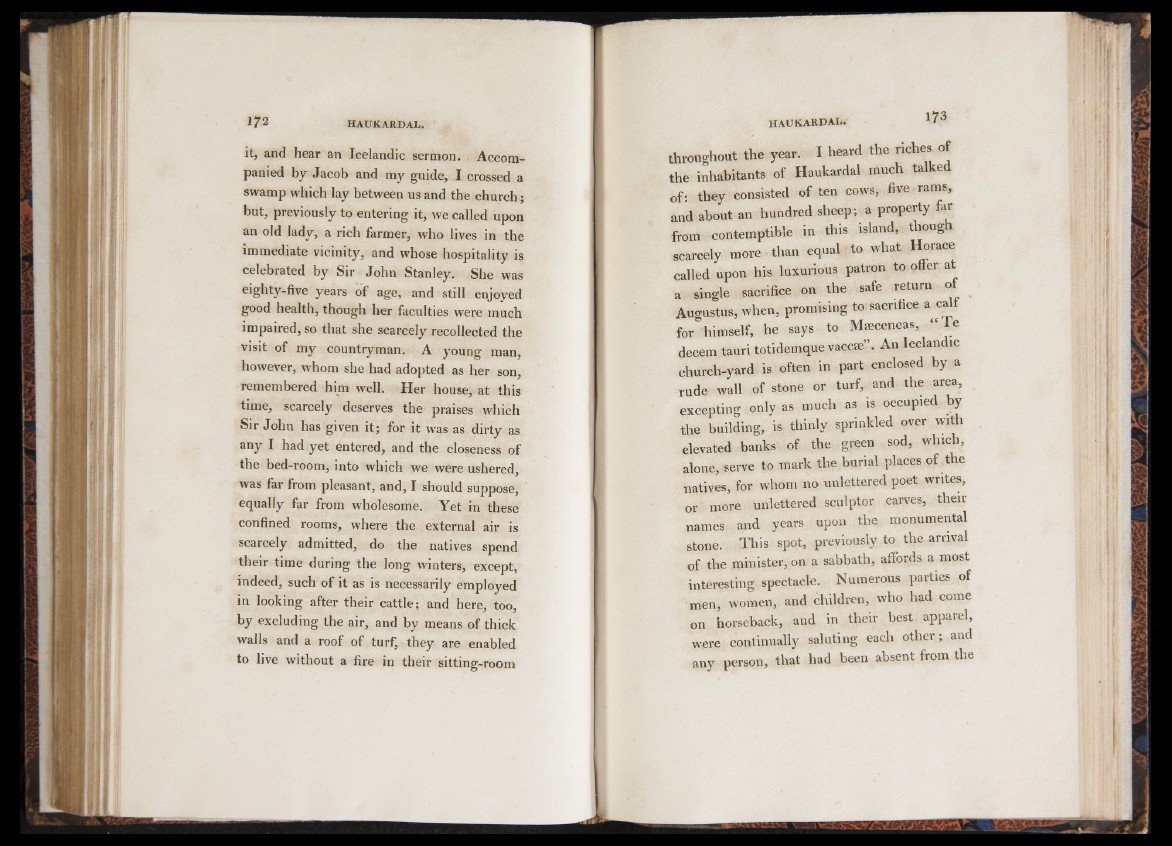
it, and hear an Icelandic sermon. Accompanied
by Jacob and my guide, I crossed a
swamp which lay between us and the church;
but, previously to entering it, we called upon
an old lady, a rich farmer, who lives in the
immediate vicinity, and whose hospitality is
celebrated by Sir John Stanley. She was
eighty-five years of age, and still enjoyed
good health, though her faculties were much
impaired, so that she scarcely recollected the
visit of my countryman. A young man,
however, whom she had adopted as her son,
remembered him well. Her house, at this
time, scarcely deserves the praises which
Sir John has given it; for it was as dirty as
any I had yet Entered, and the closeness of
the bed-room, into which we were ushered,
was far from pleasant, and, I should suppose,
equally far from wholesome. Yet in these
confined rooms, where the external air is
scarcely admitted, do the natives spend
their time during the long winters, except,
indeed, such of it as is necessarily employed
in looking after their cattle; and here, too,
by excluding the air, and by means of thick
walls and a roof of turf, they are enabled
to live without a fire in their sitting-room
throughout the year. 1 heard the riches of
the inhabitants of Hankardal much talked
of: they consisted of ten cows, five rams,
and about an hundred sheep; a property far
from contemptible in this island, though
scarcely more than equal to what Horace
called upon his luxurious patron to otter at
a single sacrifice on the safe return of
Augustus, when, promising to sacrifice a call
for himself, he says to Mseceneas, “ l e
decern tauri totidemque vaccae”. An Icelandic
church-yard is often in part enclosed by a
rude wall of stone or turf,^ and the area,
excepting only as much as is occupied by
the building, is thinly sprinkled over with
elevated banks of the green sod, which,
alone, serve to mark the burial places of the
natives, for whom no unlettered poet writes,
or more unlettered sculptor carves, their
names and years upon the monumental
stone. This spot, previously to the arrival
of the minister, on a sabbath, affords a most
interesting spectacle. Numerous parties of
men, women, and children, who had come
on horseback, and in their best apparel,
were continually saluting each other; and
any person, that had been absent from the